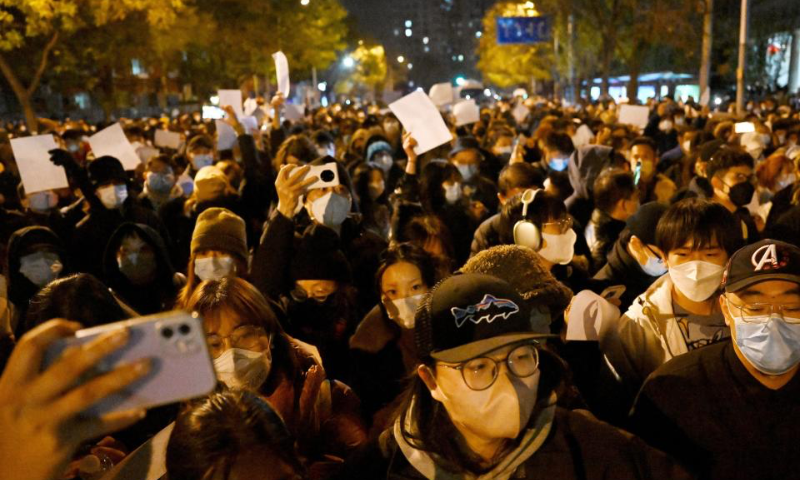Joseph C. Steinberg
WSJ, Dec. 1, 2022
“The human suffering would be dire and the political ramifications hard to fathom once Chinese citizens notice that three years of their lockdown misery didn’t, in fact, save their loved ones. The same authoritarian system that allowed Mr. Xi to institute zero-Covid makes it essentially impossible for him to duck the blame.”
After the most serious protests in three decades erupted in China over the weekend, you might think the disaster of Xi Jinping’s zero-Covid policy is the biggest crisis facing the Communist Party regime in Beijing. You’re not wrong, but to settle too quickly on this interpretation is to miss a phenomenon that is broader, subtler and potentially more threatening to the party in the long term.
The clue lies in an often overlooked characteristic of the zero-Covid fiasco: It almost certainly was intended from the start to be reversible. Mr. Xi can’t have been blind to the unsustainability of this policy, as my colleague Holman Jenkins observed this week. The game plan most likely was to keep zero-Covid in place until Mr. Xi had consolidated power by securing a third presidential term in October, after which it would become politically possible to ease up on Covid restrictions.
It’s under appreciated by outside observers how important this idea of easily reversible policies is to the Communist Party’s efforts at staving off the sort of cascading social and political changes that brought down communism in Europe. The conceit throughout China’s post-Mao era has been that the party can apply precise pressure to the levers of economic and social reform at just the right moments to achieve a given result. And not only to press the levers, but to release them when necessary to maintain the proper degree of political control.
This socioeconomic tinkering through policy reversion has been Mr. Xi’s primary project since coming to power a decade ago. Concerned that economic reforms were in danger of weakening the party’s hold on power, Mr. Xi reversed one reform after another. He reversed a long expansion of private entrepreneurship by consolidating more economic activity in the hands of state-owned enterprises and reversed to an extent the country’s previous openness to foreign investment. He reversed what had been a grudging experiment with limited democracy in Hong Kong. And more. …SOURCE


